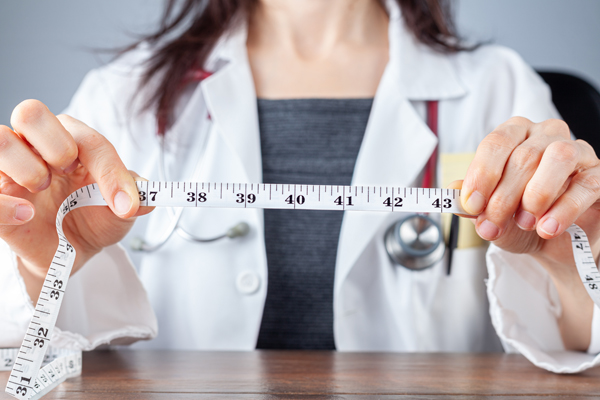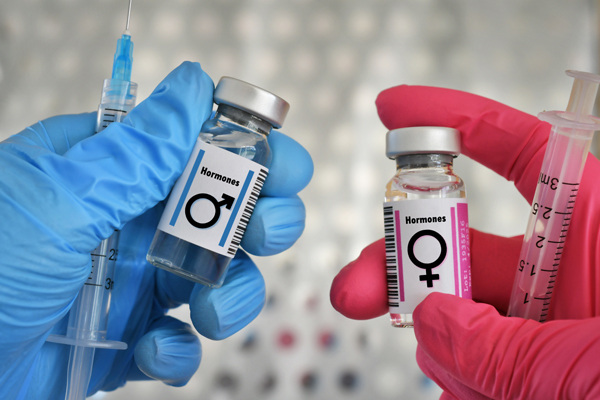Health ScreeningFriendswood, TX
Along with being a necessary routine checkup, health screenings are a crucial tool for establishing your health baseline. They can reveal hidden deficiencies, immune diseases, and other factors affecting your health or stumping weight goals. By identifying these issues early, you can take proactive steps to prevent them from hindering your health goals.
Reset Medical offers health screenings at our Friendswood office. These screenings can establish a baseline for your health and help personalize your care plan, ensuring we provide the appropriate tools you need to reach your goals. Contact our office at 1-281-529-7082 to schedule an appointment.
What are health screenings?
Health screenings, or biometric screenings, are medical tests we perform to determine the true state or baseline for a patient's health. According to the United States Department of Health and Human Sevices, health screenings can detect issues before they become more serious. They help us to uncover the truth as to why a patient may be exhibiting certain symptoms or behaviors, such as:
- Dehydration
- Fatigue
- Headaches
- High or low glucose levels
- Low energy
- Slow metabolism
- Weight gain
“Health screenings, or biometric screenings, are medical tests we perform to determine the true state or baseline for a patient’s health.”
Conditions Health Screenings Uncover
Every patient, regardless of age and gender, can receive a health screening. Health screenings uncover a variety of conditions, including but not limited to the following:
- Prediabetes and diabetes
- High blood pressure
- High cholesterol
- Immunodeficiencies
- Obesity
- Sleep apnea
- Vitamin deficiencies
We can also determine the patient's weight, including how much of it is water and how much is fat and muscle. This can help us determine an ideal weight for the patient's body type, age, and height. The latter is important primarily because it helps us determine the pressure on the joints.
Further, health screenings do not stop with the physical aspects of the body. It concerns the mental aspects as well. We can uncover unhealthy thought patterns and other cognitive processes that may interfere with the patient's goals and lifestyle.
“Further, health screenings do not stop with the physical aspects of the body. It concerns the mental aspects as well.”
Preparing for a Health Screening
To get accurate results from a health screening, we ask that patients prepare ahead of time. Sometimes, we require patients to fast eight to 12 hours before their appointment. However, this can vary depending on each patient. We will notify the patient if they need to fast before the examination when scheduling the appointment.
Next, all patients should compile a list of medications and supplements, including their duration of use, dosages, and frequency of use. Further, we will discuss family and medical histories, including past invasive and noninvasive procedures. Therefore, we ask that patients prepare this information so the process will move smoothly.
Lastly, patients should prepare to discuss their lifestyle and body goals in detail. We will discuss what they have tried in the past, how they believe they arrived at their current state, and how it may impact them mentally. That said, we strongly encourage patients to come to their health screening ready to be open and honest. By doing so, our team can consider every aspect of the patient's physical and mental well-being before crafting a personal care plan.
“To get accurate results from a health screening, we ask that patients prepare for it.”
What to Expect During a Health Screening
We primarily separate the health screening into four phases: urinalysis, blood tests, physical assessment, and conversation. Note that these phases can occur in any order. The urinalysis involves our team collecting a urine sample. Patients may want to drink at least eight ounces of water 30 minutes to an hour before their appointment. On the other hand, blood tests involve collecting a few samples of the patient's blood. Typically, no preparation is required for this phase.
The more lengthy phases of the health screening are the physical assessment and the conversation. The physical assessment involves measuring the patient's height, weight, and BMI measurements. They will also check vitals—blood pressure, heart rate, and temperature. The doctor may also assess how well a patient can perform certain physical activities. Lastly, the conversation phase involves reviewing medical and family histories, medications and supplements, and the patient's overall goals. Toward the end, and after reviewing the findings of the blood test and urinalysis, the doctor will recommend an appropriate care plan.
“We primarily separate the health screening into four phases: urinalysis, blood tests, physical assessment, and conversation”
How Reset Medical Uses Health Screenings to Develop Weight Loss Plans
Health screenings allow us to identify abnormalities in the patient's health that pose a problem when curating care plans. We also use them to identify weaknesses that may not be considered a threat to their overall health but make it difficult to achieve their goals, such as a slow metabolism. These findings help us identify appropriate nutrition plans, prescriptions, and additional services that may benefit the patient, such as IV hydration.
“We also use them to identify weaknesses that may not be considered a threat to their overall health but make it difficult to achieve their goals, such as a slow metabolism.”
Questions Answered on This Page
Q. What is a health screening?
Q. What conditions is the health screening looking for?
Q. What do I need to do to prepare for a health screening?
Frequently Asked Questions
Q. Do I need a health screening?
A. A health screening is required before we can develop a weight loss plan for you. These appointments help us understand any underlying factors that may be preventing you from achieving your weight loss goals. Additionally, they help us understand your body's needs before we prescribe medications and curate plans.
Q. What is involved in a health screening?
A. Health screenings are primarily separated into four phases: urinalysis, blood tests, physical assessments, and an in-depth conversation with the doctor. These appointments can take up to an hour, so plan accordingly. If there are extra instructions for your particular screening, such as fasting, our office team member will inform you when scheduling an appointment.
Q. How often do I need a health screening?
A. If this is your first visit to Reset Medical, we will likely require a health screening. However, some patients choose to schedule another screening at the end of their care plans to determine a new baseline for their health. Of course, our team can recommend appropriate times to schedule a health screening throughout your partnership with us.
Q. How do I prepare for a health screening?
A. Preparing for a health screening is relatively simple. The doctor may ask patients to fast up to 12 hours before their appointment. Additionally, we ask patients to compile a list of current and previous medications or supplements, including their dosages, duration of use, and frequency of use. Lastly, prepare to have an open and honest discussion regarding mental and lifestyle challenges.
Q. What if a condition is discovered during my health screening?
A. It depends on the condition. If it is a condition such as dehydration or a vitamin deficiency, Reset Medical offers IV hydration to help address it. However, if it is a chronic condition such as diabetes, we may recommend the patient consult a specialist for proper care.





